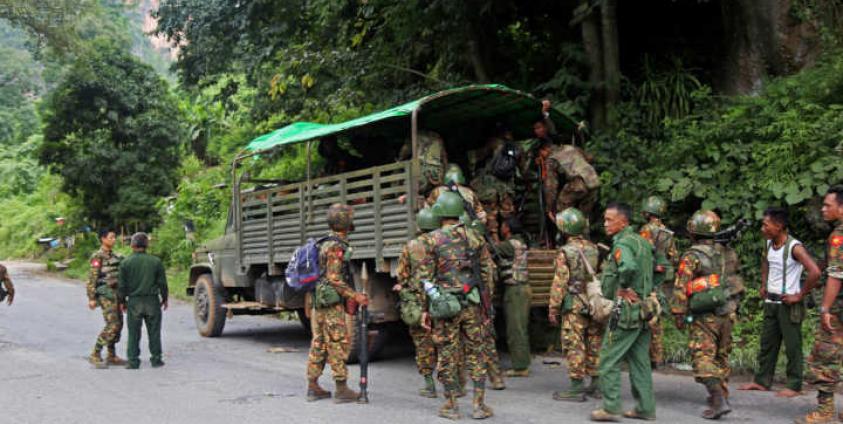NANG SENG NOM — The Burma Army has sent more troops into northern Shan State’s Kyaukme Township following recent protests against military violence in the area.
Kyaukme resident Sai Htwe Han said that military columns entered into Nawng Peng village-tract on July 16 and that travel to the area is now blocked.
“They interrogated travelers on the road. People are worried that clashes will occur again in the area,” he told SHAN.
The Burma Army and the Restoration Council of Shan State (RCSS) have had a number of clashes in Kyaukme since June 25. During the fighting a villager—Long Su—was shot dead, and Burma Army soldiers allegedly beat another local man.
Some 10,000 locals protested these incidents on July 10 and demanded justice for the victims. Organizers of the protest have been threatened with criminal charges.
On July 15, a committee including a brigade commander, a Kyaukme Township general administration department officer and other officials went to Pang Kyan village in Hai Kwee village tract—along with a military column—to reportedly look into the death and torture of the two villagers.
The office of the commander-in-chief reported that RCSS troops attacked a security guard on the investigation committee as they were looking into the case. The RCSS denied the allegation and said that it was the Burma Army troops who had fired on them.
“Our troops didn’t attack the security guard of the military convoy on July 15. The army opened fire with their machine guns toward the mountain from the school in Pang Kyan village. We didn’t shoot a single bullet,” Lt-Col Sai Oum Khur, who is a spokesperson for the RCSS, told SHAN.
He added that such accusations interfere in peace process implementation and “do not solve the problem.”
Eyewitnesses confirmed that the government troops did open fire when they entered Pang Kyan last week and that the soldiers who accompanied the investigatory team were fully armed, which could be seen as a provocation to ethnic armed organizations
“Soldiers opened fire with their guns when the military column entered the area. It’s like they were alerting other armed groups,” Sai Htwe Han of Kyaukme told SHAN.
Military tension remains high in Kyaukme, and locals fear clashes will reignite as they are trying to tend to their rice paddies.
“It’s time to grow paddy plants. Farmers cannot go to work on their paddy farms because of the clashes and military tension,” local farmer Sai Win told SHAN.
The RCSS is signatory to the Nationwide Ceasefire Agreement with the government and military, and a leading organization in peace process implementation matters.







